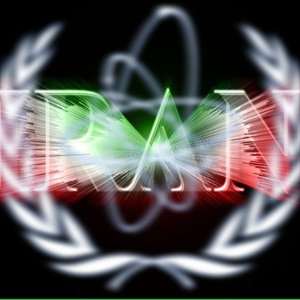An Opportunity Left
What will happen after the latest IAEA report on Iran’s nuclear activities? By Davoud Hermidas Bavand, foreign affairs analyst

Even in resolutions passed against Iran’s nuclear program in UN Security Council, the group of six world powers has frequently announced its readiness to negotiate with Iran, emphasizing that the doors will remain open to negotiations. Before the UNSC March session, when Iran’s case will be possibly discussed, we have the opportunity to resume multilateral talks with Five plus One.
If the chances for talks are squandered, Iran should inevitably wait for UN Security Council’s new decisions. With the latest report published by IAEA chief Yukiya Amano, expressing concern over the possible connection between Iran’s nuclear and missile programs, the situation seems ripe for the Security Council taking a new decision against Iran.
Previous UNSC resolutions had also addressed a likely connection between Iran’s nuclear and missile programs. In fact, the sanctions imposed by resolutions targeted not only Iran’s nuclear activities, but also its missile program, defense systems and conventional weapons.
The connection between Iran’s nuclear technology and its missile systems has been followed in international diplomatic circles for long, but the international community in now more concerned than ever about Iran’s real nuclear intention following the last IAEA report. With the connection under intense focus, the possibility of referring Iran’s dossier to United Nations Security Council has become stronger.
Iran’s initiation of twenty percent uranium enrichment has made West just more persistent on its claims about Iran’s next step after gaining advanced nuclear know-how. However, Western powers will welcome Iran’s return to the table of negotiations even before the UNSC session in March.
Referring Iran’s nuclear dossier to UN Security Council looks easier following the Board of Governor’s resolution against Iran and with the recent IAEA report on Iran’s nuclear activities, both which have added to the concerns of international community. However, there is still a door open for multilateral talks before the UNSC session. If this chance is wasted, United States and the European Union will find a better chance, given the IAEA report and Board of Governors’ resolution, to send the case to UNSC and bring China on board. West has expressed hope over the Chinese’ cooperation though Obama’s meeting with Dalai Lama may have discouraged Beijing.
If the chances for talks are squandered, Iran should inevitably wait for UN Security Council’s new decisions. With the latest report published by IAEA chief Yukiya Amano, expressing concern over the possible connection between Iran’s nuclear and missile programs, the situation seems ripe for the Security Council taking a new decision against Iran.
Previous UNSC resolutions had also addressed a likely connection between Iran’s nuclear and missile programs. In fact, the sanctions imposed by resolutions targeted not only Iran’s nuclear activities, but also its missile program, defense systems and conventional weapons.
The connection between Iran’s nuclear technology and its missile systems has been followed in international diplomatic circles for long, but the international community in now more concerned than ever about Iran’s real nuclear intention following the last IAEA report. With the connection under intense focus, the possibility of referring Iran’s dossier to United Nations Security Council has become stronger.
Iran’s initiation of twenty percent uranium enrichment has made West just more persistent on its claims about Iran’s next step after gaining advanced nuclear know-how. However, Western powers will welcome Iran’s return to the table of negotiations even before the UNSC session in March.
Referring Iran’s nuclear dossier to UN Security Council looks easier following the Board of Governor’s resolution against Iran and with the recent IAEA report on Iran’s nuclear activities, both which have added to the concerns of international community. However, there is still a door open for multilateral talks before the UNSC session. If this chance is wasted, United States and the European Union will find a better chance, given the IAEA report and Board of Governors’ resolution, to send the case to UNSC and bring China on board. West has expressed hope over the Chinese’ cooperation though Obama’s meeting with Dalai Lama may have discouraged Beijing.

